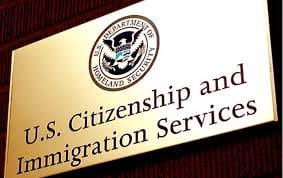
A US association of immigration advocates recently filed a lawsuit against the United States Citizenship and Immigration services(USCIS), seeking to procure documents, which would explain increased scrutiny and denials of H-1B petitions by the government unit.
The American Immigration Lawyers Association(AILA), which filed this suit, is a voluntary body of 15,000 plus immigration attorneys and academicians. In 2017, AILA got reports from its members of an increasing number of requests for evidence (RFEs), followed by an increase in the rejection of H-1B visa applications. Concerned that these trends indicated a shift in USCIS adjudication standards, AILA filed two separate requests seeking documents (especially on wage and speciality occupation determination), which would explain these actions. USCIS failed to respond, which led to AILA now filing a lawsuit in the Columbia District Court.
For the 2018-19 season, which would permit successful H-1B visa applicants to work from October 1, USCIS received 1.90 lakh applications, far outstripping the annual quota of 85,000 (which includes 20,000 under the Masters Cap restricted for applicants having advanced degrees from US universities). For the applications (known as filings) made in April, the acknowledgements and RFEs have begun to trickle in, even as the bulk of the communication from USCIS is expected in July-August.
When an RFE is issued, the employers sponsoring the H-1B visa and their attorneys have to provide further evidence to prove the need of such as visa and eligibility of the beneficiary (employee) for whom the visa is sought.
Last calendar year, up to August 31, USCIS had issued 85,000 RFEs, an increase of 45% over 2016. Sheela Murthy, president & CEO, Murthy Law Firm says: “The RFE rate is similar to the high rate witnessed last year.” “The Trump administration is coming up with new and devious ways to issue RFEs and denials, in a manner unprecedented and unseen earlier, during my thirty years of practise,” she adds.
“Even cases that are clearly approvable, when filed, are being questioned through RFEs. Even if a particular issue is not applicable to that particular application, the RFE generically raises it,” says Rajiv Khanna, managing attorney at Immigration. com who has witnessed a significant number of inquiries. He illustrates: Where an employee is expected to work in-house for the sponsoring employer (and not at a third party client site), the right of control over the employment is still questioned in the RFE.
“At this early stage, it appears that the focus of RFEs is on technology companies. We have noticed multiple direct approvals of cases that are related to non-technology sectors organizations such as hospitality, database security, engineering and architectural firms,” says David Nachman, managing attorney, at NPZ Law Group.
“We are seeing many more RFEs on the issue of lack of speciality occupation and the lack of an employer-employee relationship, especially when there are consulting companies or third party work sites are involved,” says Murthy.
Focus is on speciality occupation: An H-1B visa is a temporary non-immigrant work visa for professional workers in speciality occupations, which require a minimum qualification of a bachelor’s degree.
US technology and biotechnology companies, file virtually all of their cases under the Masters Cap. “Our initial impression based on Masters Cap filings is that RFEs have primarily raised concerns about speciality occupations and level 1 wages” says Scott Fitzgerald, partner at Fragomen Worldwide.
“In nearly all the RFEs, we have seen till date (relating to both general and Masters Cap), the focus is on requesting an explanation about why the position qualifies as a specialty occupation position. While this can be proved, the downside is that there still remains a tremendous amount of subjectivity in the manner that a speciality occupation determination can be made by the concerned officer,” says Nachman. Ditto at the law firm of Cyrus D Mehta, the few RFEs received so far, inquired into the issue of speciality occupation.
Khanna points out a few challenges: “USCIS is also requiring proof that in the specific industry or for this particular project, a degree focussed on a specific subject or subjects is required. Opinions of experts based on in-depth review of the job description are being dismissed on the ground that the expert has not visited the premise of the sponsoring employer or observed its workflow, first hand.”
Even if RFEs can be successfully dealt with, it proves to be a time consuming and costly exercise, sums up an in-house immigration specialist at an IT company.




